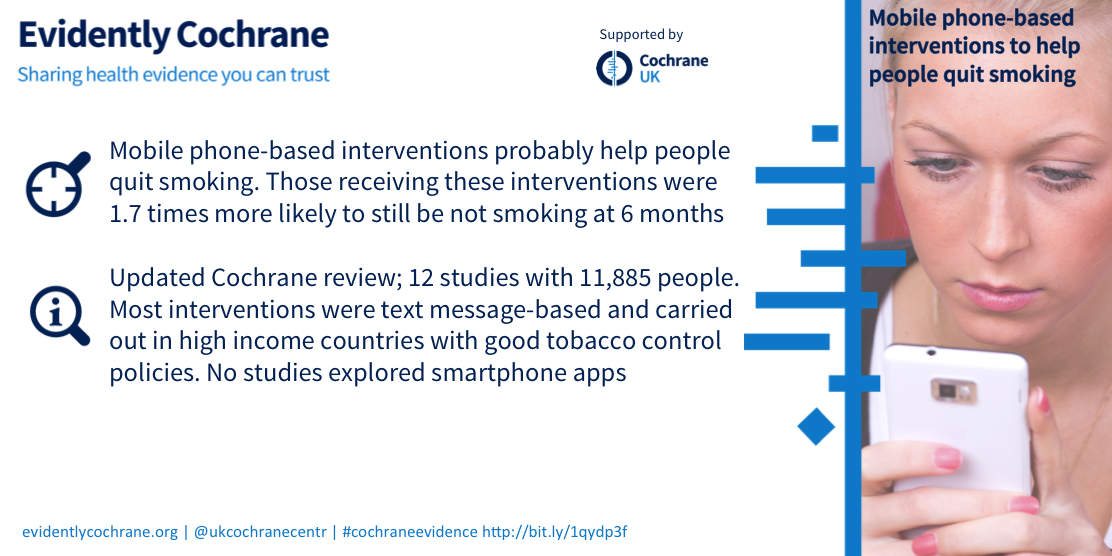
31 May is World No Tobacco Day. It is organized by the World Health Organization to draw attention to the health risks associated with the use of tobacco and what can still be done to reduce tobacco consumption around the world.
Here we focus on a Cochrane Review of a medical intervention - nicotine receptor partial agonists for smoking cessation - and what the available evidence tells us about its effectiveness.
Cochrane Review provides more support for medication as long-term aid to quitting smoking
When people stop smoking, they experience cravings to smoke and unpleasant mood changes. Nicotine receptor partial agonists aim to reduce these withdrawal symptoms and the pleasure people usually experience when they smoke. The most widely available treatment in this drug type is varenicline, which is available worldwide as an aid for quitting smoking. Cytisine is a similar medication, but is only available in Central and Eastern European countries, and through internet sales.
A team of Cochrane authors based in the UK, working with the Cochrane Tobacco Addiction Group, updated their review of the efficacy of nicotine receptor partial agonists, including varenicline and cytisine, for smoking cessation. Findings take from 44 studies, which include 25,200 people.
Varenicline at standard dose more than doubled the chances of quitting compared with placebo. Low-dose varenicline roughly doubled the chances of quitting, and reduced the number and severity of side effects associated with using the medication. The number of people stopping smoking with varenicline was higher than with bupropion or with nicotine replacement therapy. Based on the evidence available so far, the authors calculated that varenicline delivers one extra successful quitter for every 11 people treated, compared with smokers trying to quit without varenicline.
A key focus of this review update was to investigate any side effects that may result from using this type of medication. After varenicline became available to use, there were concerns that it could be linked with an increase in depressed mood, agitation, or suicidal thinking and behaviour in some smokers. However, this latest evidence does not support a link between varenicline and these disorders, although people with past or current psychiatric illness may be at slightly higher risk. There have also been concerns that varenicline may slightly increase heart and circulatory problems in people already at increased risk of these illnesses. Again, current evidence suggests that they are not caused or made worse by varenicline; however we should have clearer answers to these questions when a further study is published later in 2016.
“Varenicline is the most commonly used nicotine receptor agonist. It currently has a black box warning regarding adverse events on its packaging. This Cochrane update provides new insights into adverse events - early individual case reports linking the drug to suicidal behavior have not been confirmed by the pooled scientific evidence,” said Nicola Lindson-Hawley, one of the authors of the Cochrane Review. “While it is important that clinicans still take pre-existing conditions into consideration when prescribing varenicline, this Cochrane Review confirms the success of varenicline as an aid to quitting smoking in comparison to using no medications to quit.”
Visit the Cochrane Tobacco Addiction Group website
Cochrane Reviews for World No Tobacco Day:
Help to quit smoking: Nicotine receptor partial agonists
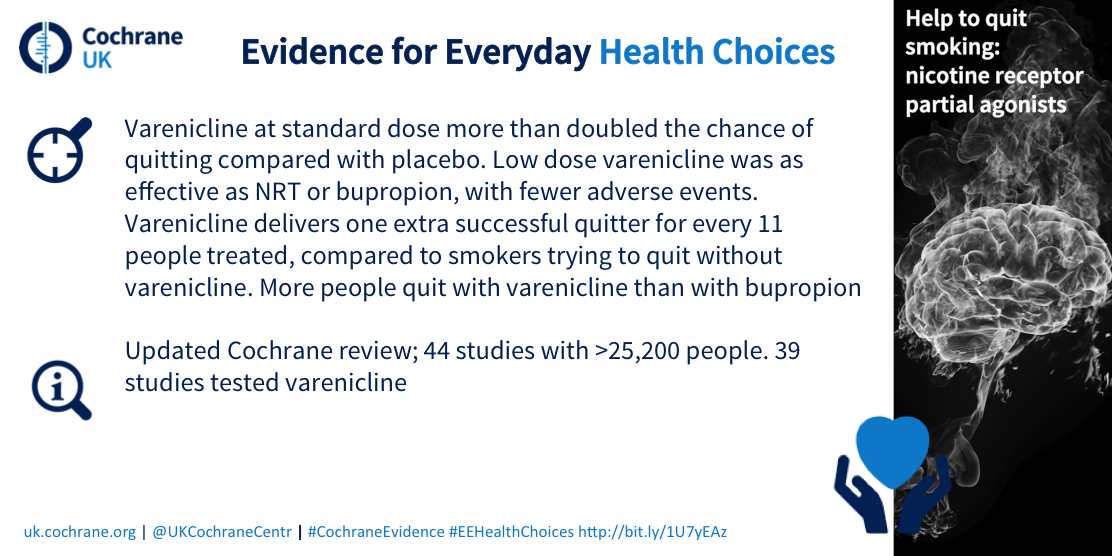
Help to quit smoking nicotine replacement therapy (NRT)
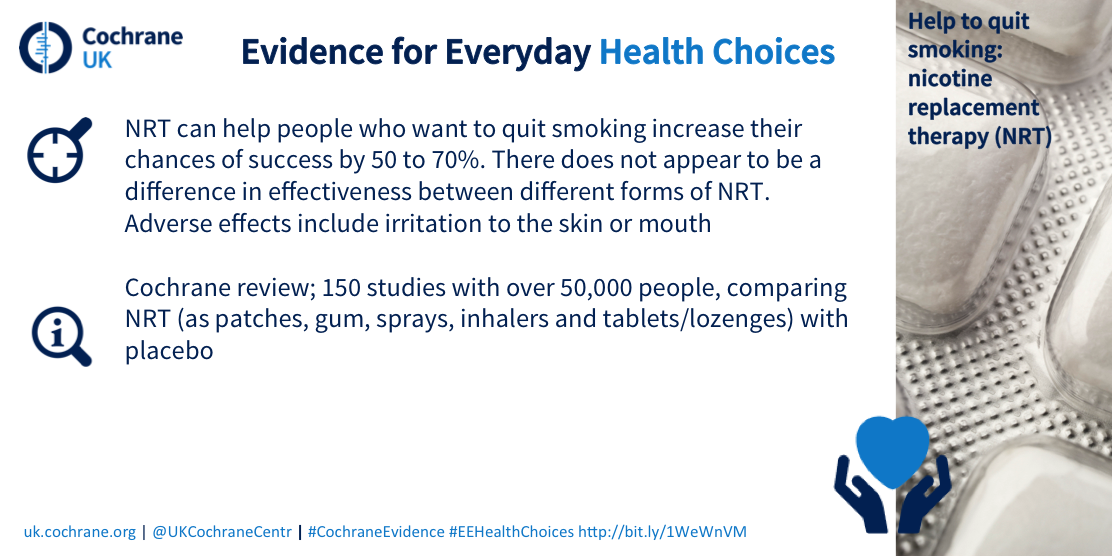
Legislative smoking bands: do they benefit health?
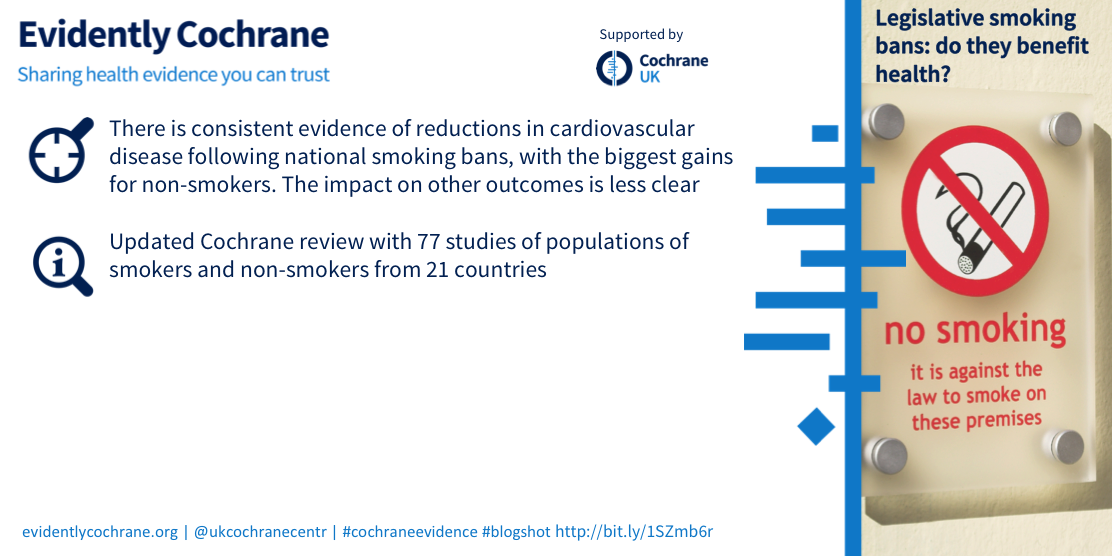
Help to quit smoking: E-cigarettes 
Help to quit smoking: Motivational interviewing

Help to quit smoking: behavioural support

Helping smokers quit before surgery

Nursing interventions for smoking cessation.
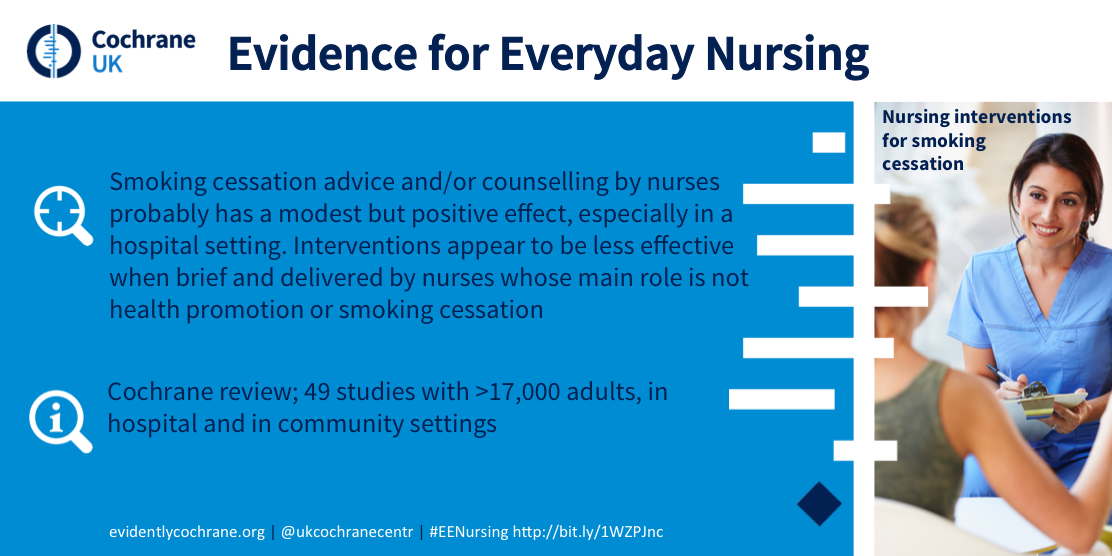
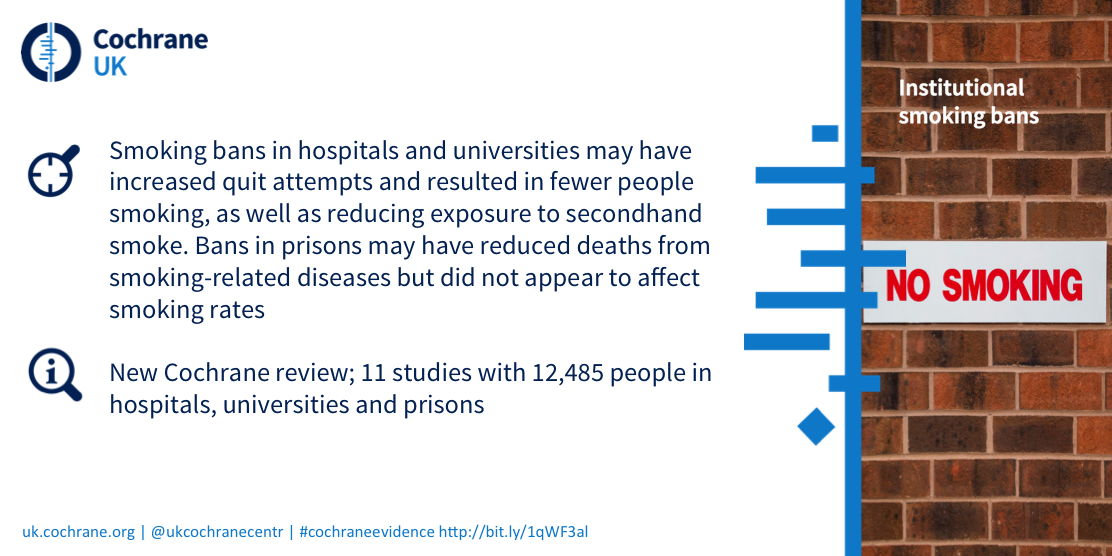
Mobile phone-based interventions to help people quit smoking.
